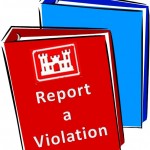
An equipment violations is one of the three types of non-moving traffic violations. Specifically, an equipment violation is a violation of a statute, ordinance, or rule relating to traffic movement and control that involves equipment, vehicles or their drivers, owners, or pedestrians, and miscellaneous offenses not categorized elsewhere. Unlawful vehicle modifications and mechanical violations are committed when you use a vehicle that is not properly equipped or whose equipment is malfunctioning. Typical unlawful vehicle modifications include window tinting, removal of mufflers, lowering or raising of the vehicle, and addition of under vehicle neon lights. To avoid a mechanical violation, you need to ensure that your vehicle’s equipment is installed correctly and in proper working order. This includes windshields and windows, brakes, mufflers, mirrors, lights, horns, safety belts, reflectors, and tires. Penalties for unlawful modifications and/or mechanical violations usually result in a traffic ticket.
In many states, you can be issued what is known as a “fix it” ticket, which is a ticket that allows you to get the equipment fixed and have a law enforcement officer confirm that the violation has indeed been fixed. You need to read your ticket closely to determine if you need to simply mail in the Certificate of Correction or if you need to go to court in order to have the case dismissed. Most states allow you to drive your vehicle to your residence, place of business, or garage after receiving a traffic ticket for driving an unsafe vehicle. Other states, such as Oregon, do not allow you to operate a non-conforming vehicle at all and in this case you would need to have your vehicle towed. Driving or moving a motor vehicle in an unsafe condition is considered a civil infraction.
Illegal Window Tint
Window tint laws vary by state, and sometimes even from district to district within the same state. Window tinting (to a certain degree) is illegal because it reduces the driver’s visibility.
Defective Headlights, Taillights, and Turn Signals
It is illegal to drive a vehicle that is damaged or unsafe, and nonfunctional headlights, taillights/brake lights, or turn signals/blinkers fall under this category. Broken or missing lights are considered primary offenses, meaning that police will pull you over for this reason alone.
Expired, Improper, or Missing License Plate
Not having a valid license plate can result in both a ticket and impounding of your vehicle. If your license plate expired within the past 48 hours, sometimes police officers will let you off with a warning.
Driving With Expired Registration Decal
If you do not have a current registration sticker, or decal, on your vehicle you are considered guilty of driving without displaying valid vehicle registration. In most states, the penalties for driving a vehicle without valid registration will increase the longer the registration has been expired.
Improper Use of High Beams
High beams, or brights, are supposed be used only to help you see further down the road when traveling on a road without enough streetlight. Flashing your high beams excessively is a citable infraction in most states, as is leaving your high beams on when coming around a bend approaching a traffic light. You can also be ticketed for flashing your high beams to warn other drivers that a police car is near, referred to as ‘improper use of multiple beam headlights.’
Possession of Radar Jamming Device
Radar jammers are transmitters that are tuned to interfere with a radar signal, and the possession and use of such devices is prohibited and citable. Although each state has different criteria for citation, radar jamming devices are illegal in all 50 states.
Defective Odometer/Faulty Speedometer
Defective odometer citations are mostly used when a defendant wishes to plead to get a speeding ticket reduced by claiming a speedometer calibration error. Sometimes, a judge will reduce a speeding ticket to a defective equipment ticket.
Hazardous or Improperly Loaded Cargo
The Federal Motor Carrier Safety Administration (FMCSA) holds professional drivers and their employers accountable for these types of violations. Under the Comprehensive Safety Analysis (CSA) 2010 program, cargo loading and securement is one of seven violation categories for which you and your employer can accrue CSA points against your commercial driver’s license. These infractions include improper securement (such as crosswise stacked loads), lamps not visible as required, driving without a red flag or red lights on the projecting end of a load extending more than a meter, and leaking, spilling, blowing, and/or falling cargo.
Contact LegalHelpLawyers.com today to speak with one of our qualified traffic ticket lawyers to help get you the best result possible!

